Despite growing opposition, FCC passes repeal of Net Neutrality
Check out these Arts reviews
The internet is like a grocery store. It is full of all different kinds and qualities of foods and is open to all people. Grocery stores are set up like this because everyone needs and deserves open and equal access to food. The same goes for the internet, anyone with access to a computer can go anywhere they wish to on the internet and can gather the same beneficial information from it as anyone else.
Republican chairman Ajit Pai of the Federal Communications Commission (FCC) was able pass his plan within the FCC to repeal Net Neutrality, which are the rules put in place by the government in 2015 preventing the blocking, throttling, and paid prioritization of content on the internet.
If his plan passes Congress, the internet would no longer be completely open to everyone. The internet without net neutrality would become like a grocery store that is set up with the healthiest most beneficial foods at the back and the least beneficial, processed and prepackaged foods at the front. It would then have barriers that people would have to pay to get through to have access to the most beneficial foods.
“There are communities or schools that use the internet services for learning that have been very beneficial for them. But if we repeal Net Neutrality, they won’t have access to those services anymore or they’ll have to have to pay for those services which can put a strain on those communities or they might not be able to use them at all,” sophomore Sophie Browning said.
Low income schools and communities would be the hardest hit by the repeal. Because of the FCC’s “E-Rate” Program, which reduces internet prices for public schools, 99 percent of U.S. k-12 schools have internet access, however just because they have internet access through this program does not mean they will not be affected by the repeal. Many of the low income school rely heavily on free educational services and resources available on the internet. If Net Neutrality were repealed, an intense strain would be placed on already tight budgets or they could lose access to these services all together.
“I think what we would see with that as far as impacting the public school is that we wouldn’t notice a difference. I think that, you know, we’d pay a little bit more here or there which then gets metered out… In our $40 million budget I think there are a lot of areas where we wouldn’t notice it,” Assistant Principal Aaron Drevlow said.
According to Drevlow, students would not notice much of a difference in internet use after the repeal. Within the $40 million budget, a $15 or $20 thousand increase would not make much of a splash, slight shifts would have to be made in individual budgets within the school, however, which is not ideal.
The repeal is not a bad thing for everyone, it is extremely beneficial for internet service providers (ISPs). ISPs would profit from making websites “pay to stay fast”, putting a price on the speed with which internet users can use their websites. Wealthy companies also benefit from the repeal because, in partnership with ISPs, they can essentially eliminate any competition from smaller businesses on the internet by paying to have priority over other websites.
Though the repeal passed along partisan lines within the FCC, the fight for maintaining net neutrality is not over. It is still possible for Congress to pass a “Resolution of Disapproval” which would overturn the FCCs vote. People in support of net neutrality should write and call Congress and their representatives to tell them that they should pass the “Resolution of Disapproval” and protect net neutrality for all U.S. citizens. People who wish to do this can go on battleforthenet.com where they can put in their email, address, and phone number and can send a generic or customized letter to congress and their representatives. They will also be given the option to call their representatives using a script provided by the website.

Hannah Sween is a senior and a Print Editor-in-Chief for the Stillwater Pony Express. She is also the Editor-in-Chief of The Boom Site Literary Magazine....



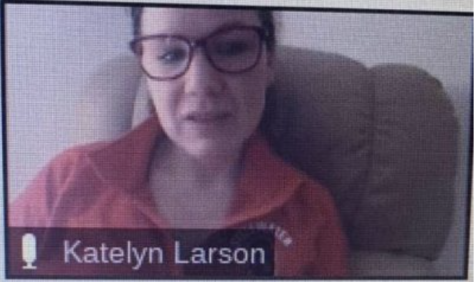
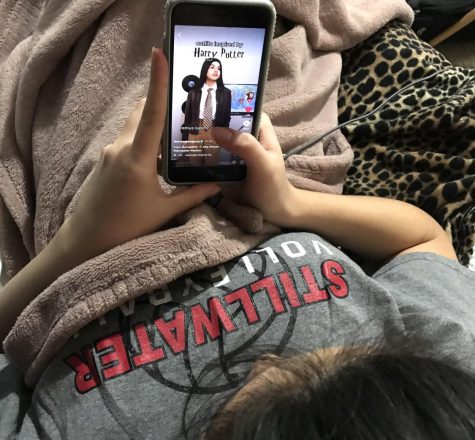

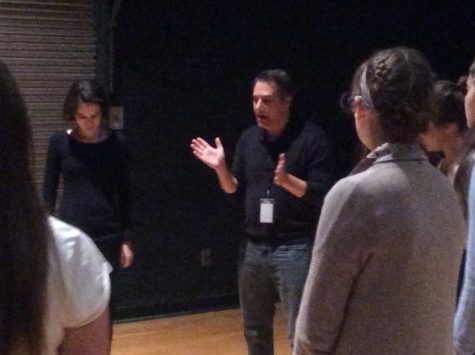




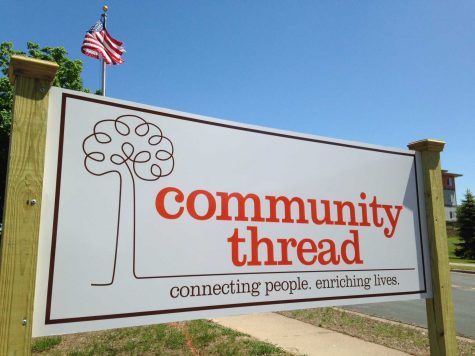
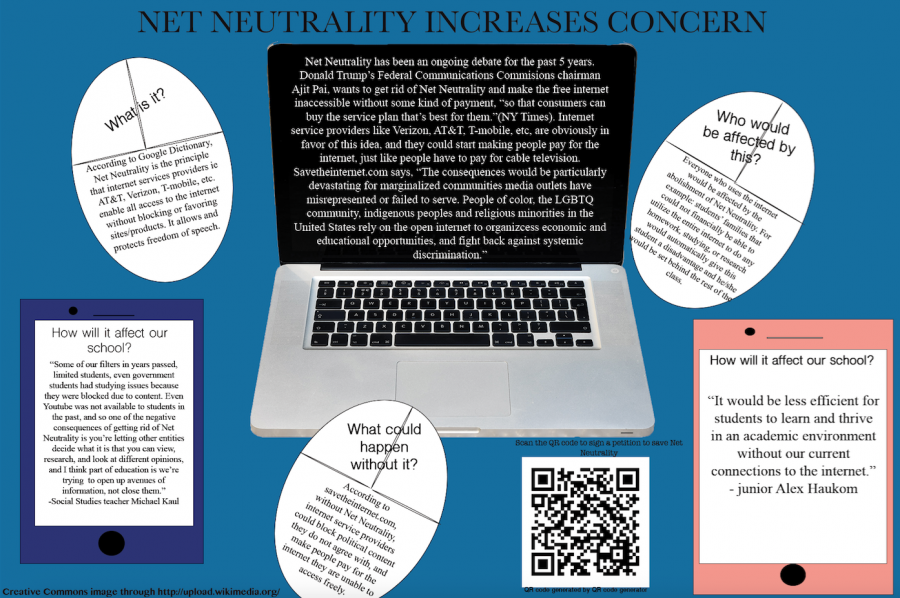

Josefina Scherek • Jan 22, 2018 at 8:12 am
There is very intense research/background knowledge. I think the tone of the overall article could have had a lighter feel and less serious tone to attract a bigger amount of teenage readers! Overall awesome article!
Luke Dickinson • Jan 18, 2018 at 8:21 am
The Alt copy story had a lot of detail, but what made it great was how it was so visual and it really caught my eye when I first saw it.
Abby Banks • Jan 17, 2018 at 7:48 am
I love your opening analogy, I think it’s a great hook for students to understand an extremely complicated topic. Quotes were strong, and the opinion was obvious throughout, and was well-explained. Great job!
Daniel Schlenker • Jan 17, 2018 at 7:22 am
With the Internet being so important to students for both educational and personal use this story is covering something that is directly impacting many students and the well structured and strongly supported story uses good links and shows all the key aspects of a proper news story.
Max Kennedy • Jan 17, 2018 at 12:18 am
Your article was very factual and gave us a good summary of what was going on when the FCC repealed net neutrality. I like how it was informative at the end and you gave us a link so we can voice our opinions. one thing you could do better is address the opposition a little better just to see the other side in this argument.
Logan Huber • Jan 16, 2018 at 10:55 pm
The alt copy was very well done, it looked very nice with all the data in computer accessories. The author did a lot of backround research and had a lot of data included in the alt copy. It had a good Qr code and it was interesting to look at and read.
Paxton Watson • Jan 16, 2018 at 9:10 pm
This article did a good job of informing the public about what is going on with this situation. I also thought it was really well written. I enjoyed the graphics too it added a nice lighter touch to the topic.